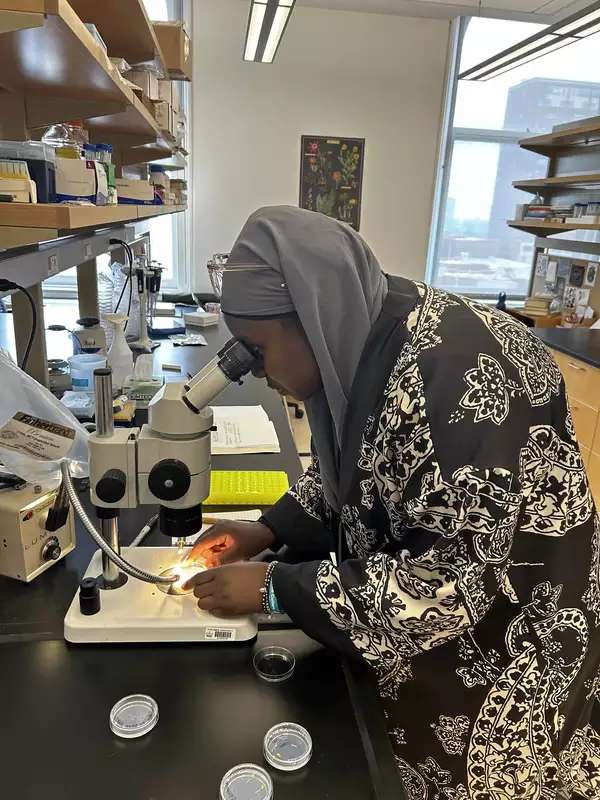Blog post #3 by Ellie Kimura
For my summer research project on Insulin-Like Peptides in Two-Spotted Crickets, I presented my research project to some of my peers and mentors along with other members of the University of Tokyo Graduate School of Frontier Sciences. The title of my research project was Changes in Feeding Behavior Induced by Insulin-Like Peptides in Gryllus bimaculatus. In order to better understand ILPs, I was particularly interested in isolating the gene to determine the DNA sequence of this ILP gene. Ultimately, I was able to identify ILPs in various tissues throughout the two-spotted cricket. Another finding was the alignment of the genomic sequence involving the PCR products of my tissues and the ILP DNA sequence. This discovery further confirmed that the genetic material of the PCR products in these various tissues matched the targeted ILP gene. Through RNA interference, I found that the expression of ILPs influenced the feeding behavior of the crickets, with the silencing of the ILP gene to increase food intake and the expression of the ILP gene to reduce food intake. These changes suggested that satiety signaling may be a role of the ILPs, however further research with larger sample sizes and a molecular approach to analyzing the ILP signaling functions would be needed to further understand the complex role of ILPs in living organisms.
The biggest takeaway from this experience was finding differences between the work environment in a laboratory in a different country. My communication skills from working in a lab in a different country, especially the connections I made with my lab members, really motivated me to be more comfortable asking questions. Because I have never worked in a lab in Japan, there were some logistical challenges, such as communicating with lab members and adjusting to a different style of work ethic. I found myself having to constantly step out of my comfort zone and ask questions about very simple things. I believe that this was a valuable takeaway from my summer internship because I was able to learn a lot more and gain a lot more insight into my research, as well as the research of my lab members. Overall, I had a wonderful summer full of memories and new research skills that I hope to bring with me as I start my senior year at Barnard.




